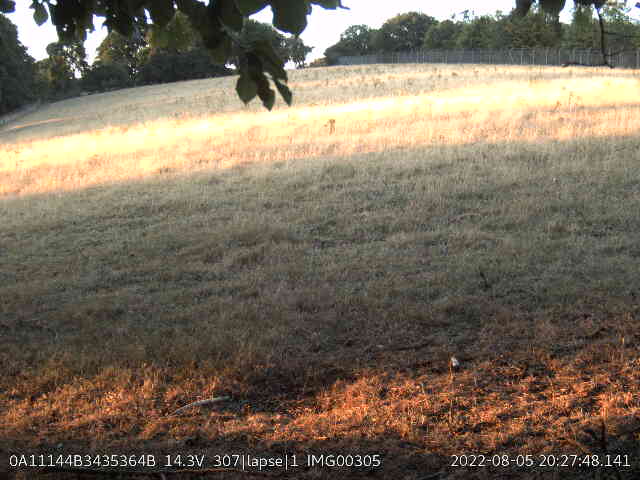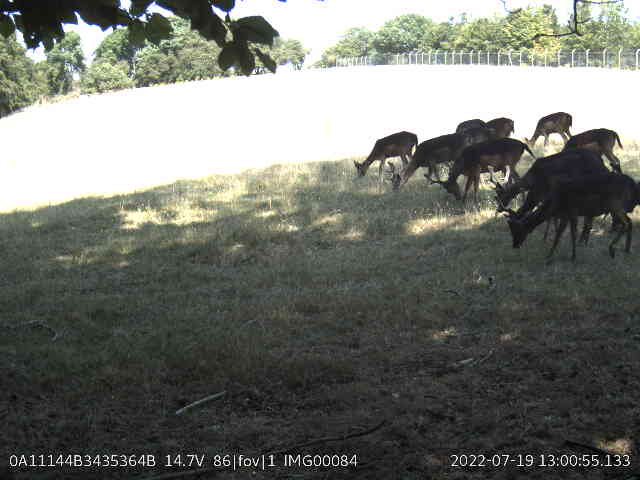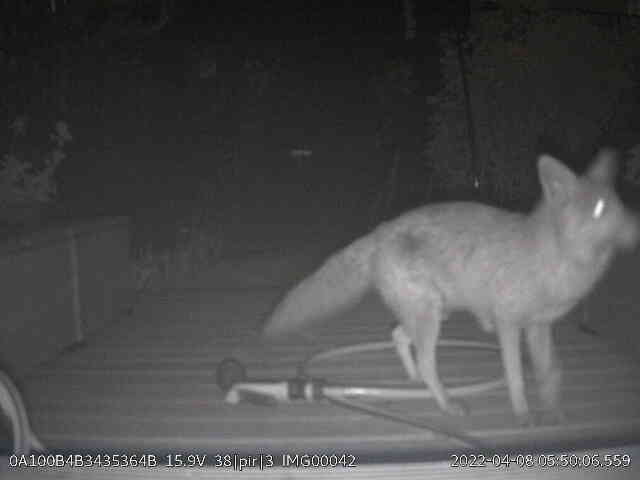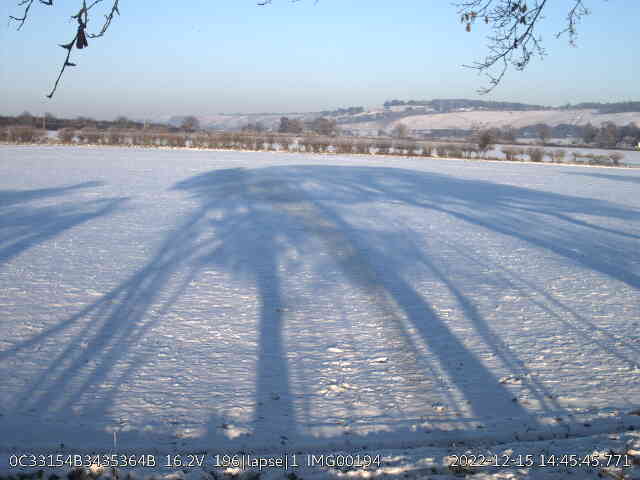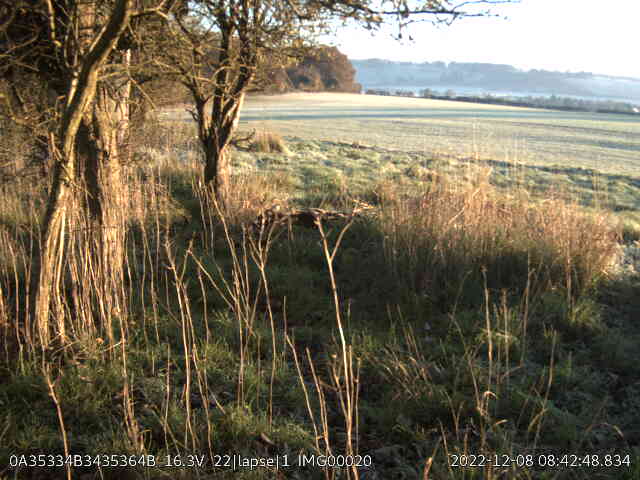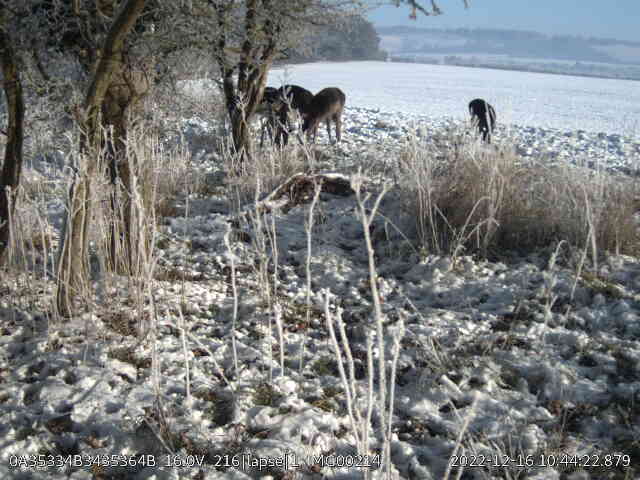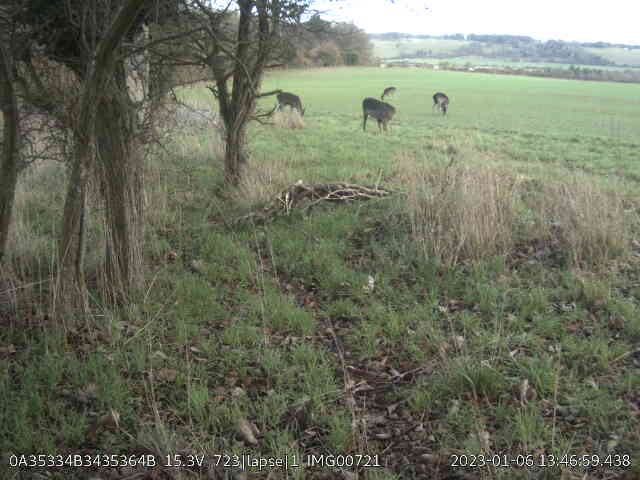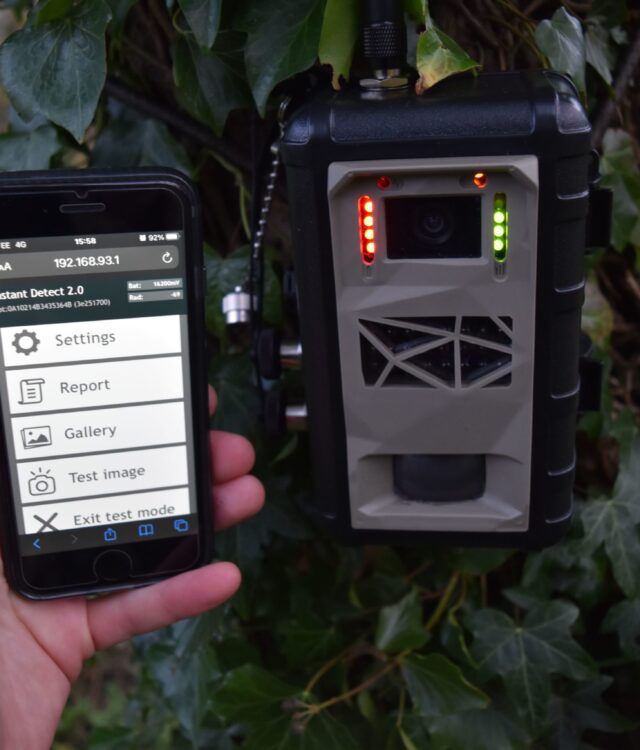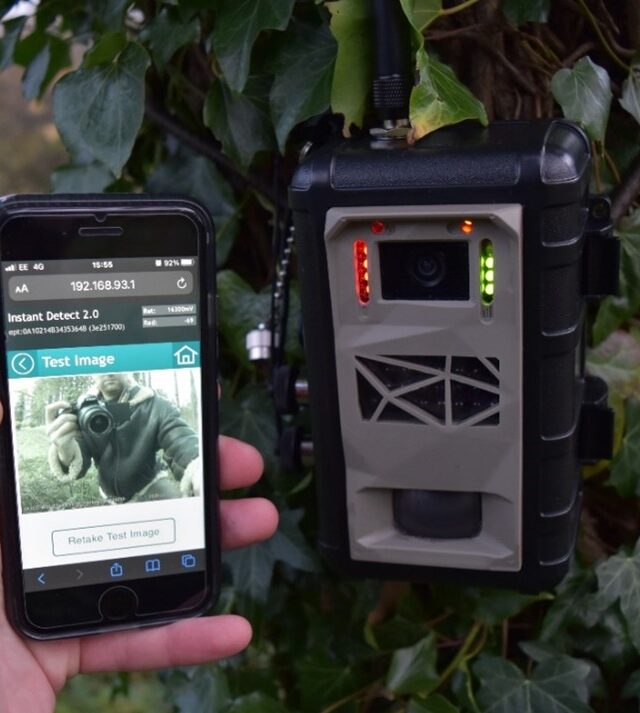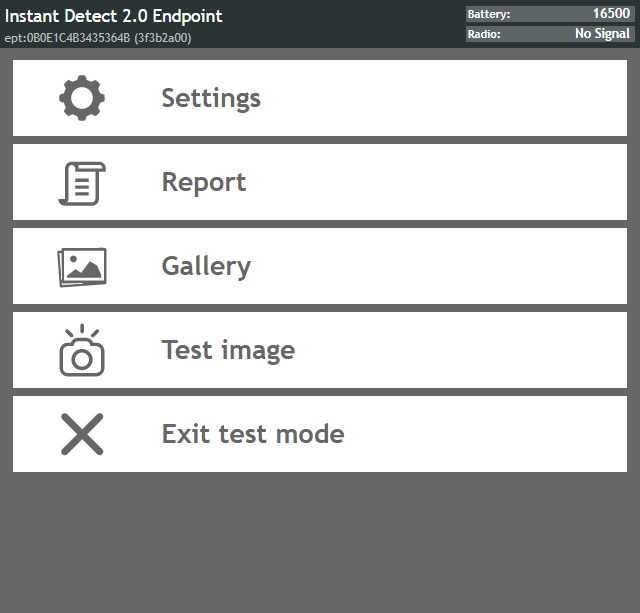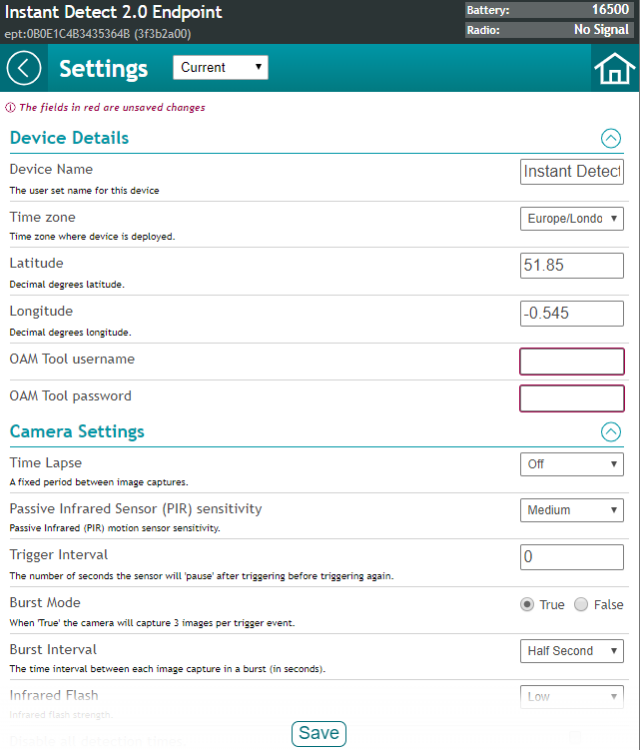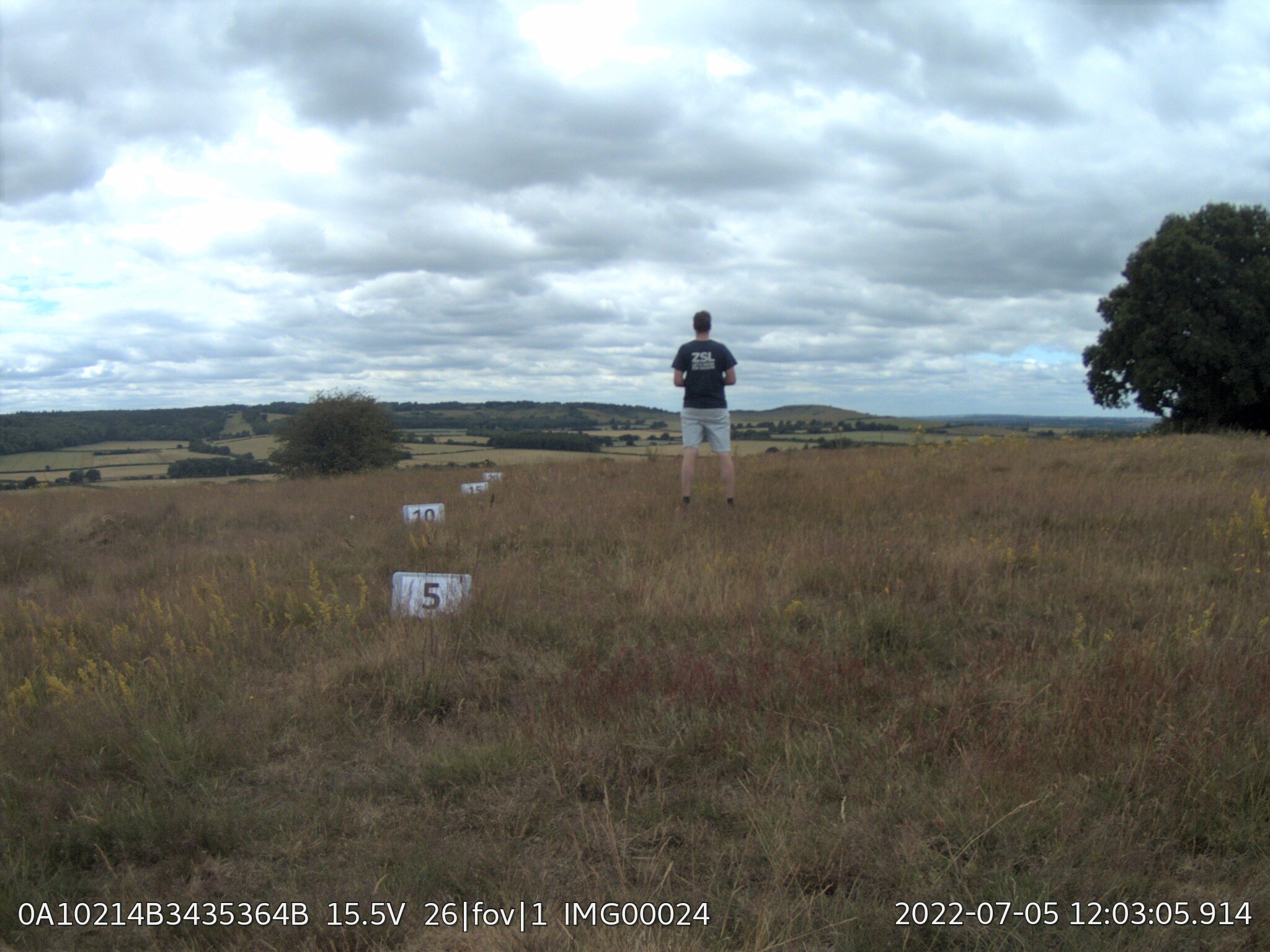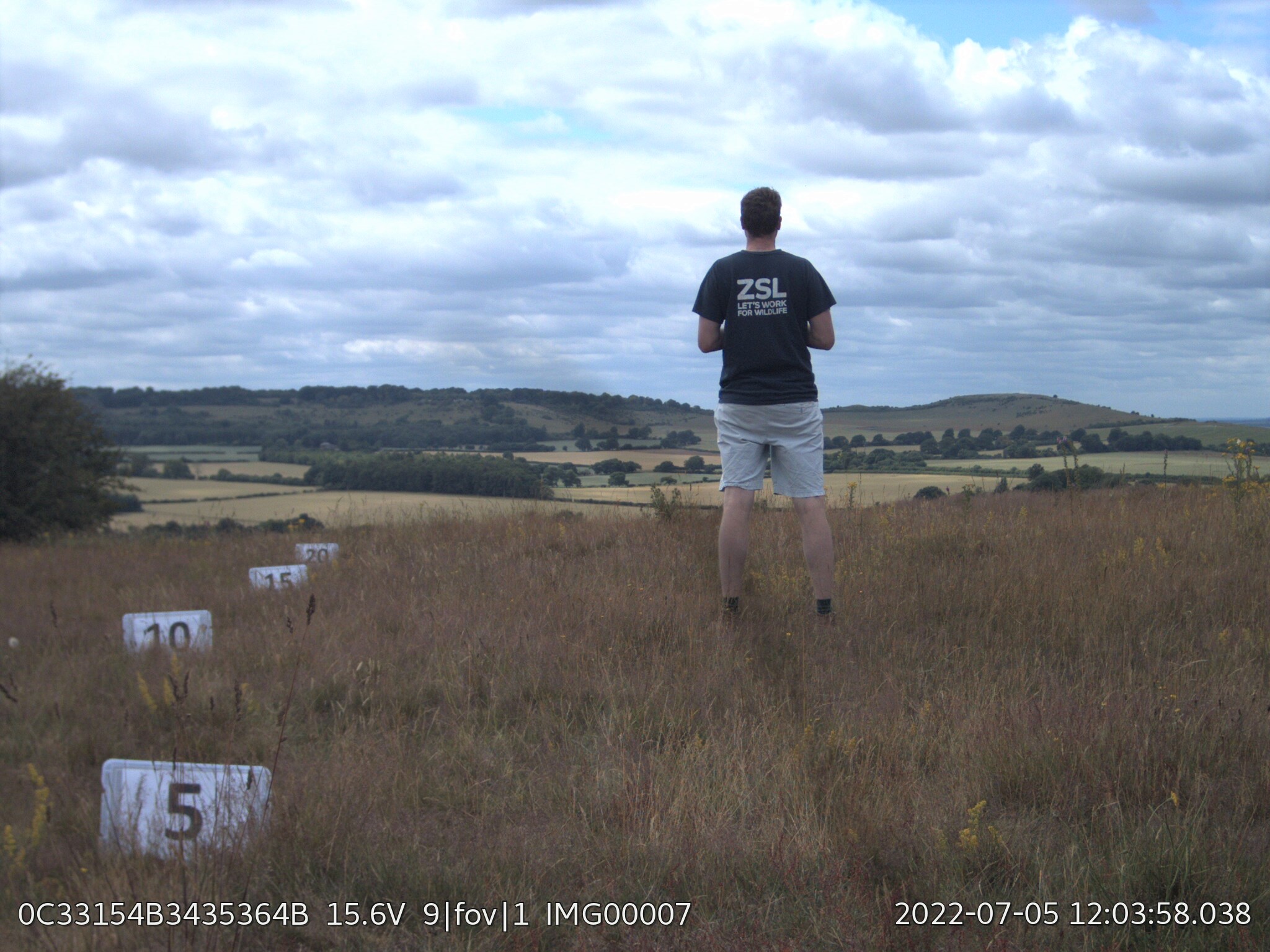Camera
- Combining the performance of a high-end camera trap with the ability to transmit images from anywhere in the world.
- Available with 3 lens options – Compare the lenses
Where will you put yours? What might you discover? Could it change the world?
Connectivity
The Instant Detect 2.0 camera contains a low power Long-Range (LoRa) radio. When powered on, the camera will automatically connect to the nearest Base Station, and will then remain synchronised.
When an image is captured the camera transmits a short text alert followed by a thumbnail images (25-50 Kb) to the Base Station. It will also send it’s configuration and a regular performance report that contains the battery and memory status as well as the number of images that have been captured in the past 24 hours. Every transmission to the Base Station is acknowledged, so data and images are never lost.
LoRa radio is extremely resilient to interference and poor connections, so can continue sending over long ranges and through dense vegetation.
The transmission speed automatically adjusts depending on the signal strength of the connection. When the signal strength is weaker, caused by range, foliage, weather or other radio interference, the transmissions will slow down. However, with good line of sight between the camera and the Base Station’s antennas, the camera is capable of transmitting images at its highest speed across 2 Km.
Image Quality
Full sized 3 megapixel JPEG images are saved to the camera SD card.
A smaller thumbnail JPEG, typically 25-50kb, is sent to the Base Station using the LoRa radio.
Example thumbnails:
Capture Modes
PIR Sensor
Used for wildlife monitoring, the in-built PIR sensor detects heat and motion in front of the camera. The detection area has been carefully mapped to the field of view.
Time-lapse
Used for wildlife or site monitoring, the time-lapse mode will capture images at regular time intervals.
External Sensor Triggered
Used for threat detection, or where a PIR sensor would be too inaccurate, an external sensor can be connected to the side of the camera. For human detection, a metal detecting sensor has been developed that will only trigger when metal (vehicles/humans) moves past the sensor.
Field-of-View Check
In addition to the other shooting modes, the camera can be set to capture an image at two set times of the day, i.e. morning and evening, to check the field-of-view is still clear.
Capture Speed
The camera will wake up and capture an image in 1 second with a recovery time of 3 seconds between triggers.
Adjustable Bursts
When triggered the camera can capture single images or a burst of 3 images. The time between the images in a burst is adjustable. For a quick moving target the burst interval can be set at 0.5 seconds, while a slower target could have an interval of 1, 2, 5 or even 10 seconds.
Low Light
The image sensor has excellent low light performance to keep taking colour images when other camera traps have transitioned to using infra-red and grayscale.
IR Flash
At night, a powerful 940 nm wavelength infra-red (IR) flash, invisible to humans and wildlife, provides illumination out to 20 metres and freezes motion.
Test Mode/Active Mode
The camera is always either in Test Mode or Active Mode and can be cycled between the two by a button on the exterior of the case.
Diagnostics
In Test Mode, external LEDs provide simple diagnostics of battery strength, radio signal strength and when the camera is triggering. An internal LCD screen provides more detailed readings and shows the current settings. In Active Mode the camera goes completely dark.
Access Tool
In Test Mode the camera creates a WiFi portal that displays the Access Tool in any web browser. Users just need a smart phone, tablet or laptop handy. The Access Tool is used to change the cameras settings, view images, check reports and take test images.
Memory
Cameras are provided with 32GB SD cards. A setting allows the oldest 100MB of memory to be written over.
Power
The Camera comes with two rechargeable lithium ion batteries that fit internally into the enclosure. On batteries the Camera will run for over 100 days when sending 10 images a day.
Alternatively, an IP-67 rated 4-pin external power connector allows a larger 9v-14v battery to be used which could even be solar or wind charged.
Rugged Design
The camera has a rugged design to match IP67 standards so that it can be used in the darkest wettest jungles, baking dusty deserts, tropical archipelagos or the frigid polar regions.
Lens Options
At manufacture the camera can be fitted with a one of three high quality lens options depending on the intended use:
- The 8mm focal length lens has a 56° field of view similar to that of most commercial camera traps. It is perfect for monitoring medium to large animals 5-20 metres from the camera.
- The 6mm focal length lens has a 75° field of view and is best suited for monitoring small animals between 0-5 metres from the camera.
- The 3.6mm focal length lens has a wide-angle 96.4° field of view to maximise the possibility of target capture in front of the camera, ideal for threat detection when using an external sensor.




